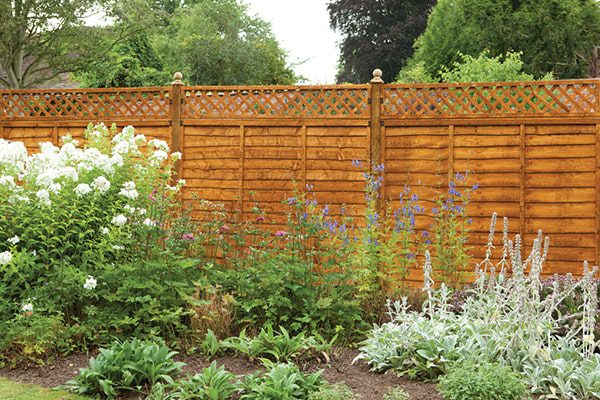If you want to fence, there are a few tips you can follow to improve your game. The first is to watch as many bouts as you can, and get a coach to help you with your fencing technique. You can also observe the way your opponent fences, and formulate a strategy against them. After all, no two fencers fence the same. You need to learn from your opponent’s style and weaknesses, or you won’t get very far.
Footwork
In order to achieve excellent footwork, you need to practice with intense concentration. The key to this is to pay attention to the tempo change and step size in each practice session. Your footwork is what you repeat during a tournament. If your footwork is sluggish in practice, you will likely have sluggish feet in competition. The same principle applies to the tempo change in your practice session. Practice with intensity, and you will notice a dramatic improvement in your footwork. Remember, intensity does not only mean power, but also sharpness and accuracy.
A technical fencing coach will spend hours perfecting footwork. They will tell you to pick up your feet as you move from one side to the other. By using your legs dynamically, you’ll be able to avoid flat footed steps and start and finish in a balanced, strong En Garde position. Learn the proper footwork by studying fencing videos. In addition to watching video clips, you can learn from real-life fencing instructors.
Developing a solid footwork technique requires a high level of commitment. You’ll need to dedicate time to the practice session. The goal is to focus on footwork as much as possible, and you’ll notice a dramatic improvement in your fencing ability. If you’re a beginner, it can be intimidating to work alone. If you’re unsure of how to focus, consider talking to a personal fencing coach to get some advice.
Understanding the sport
If you want to become a better fencer, you need to understand how the sport works. Watch fencing matches and discuss the different techniques. Discuss sparring and training methods with other fencing students. Try to identify problem areas and focus on improving those. This way, you will improve as a fencer. Here are some helpful tips on understanding fencing to improve your fencing skills. Read on to learn more! Here are some quick tips:
The first thing you need to understand is that fencing is similar to chess. It emphasizes lateral movement, speed, and precision, rather than height-based sports like soccer or football. As such, you need to be quick and accurate to score touches. This sport is both physically demanding and safe for beginners and advanced fencers alike. Fencing is an activity for all ages, from eight to 80! You can learn from experienced fencers, beginners, and everyone in between.
Another tip for beginners is to learn how to understand the rules and equipment used in fencing. While most fencing matches are one-on-one, there are also team events. The most important piece of equipment to learn about is the weapon. Fencing players use a heavy sword known as an epee. A lighter sword called a foil is used for thrusting. The sabre is a cutting and thrusting weapon that derives from the cavalry sword.
Practicing it
Practicing fencing can improve your skill level. To improve your skills, you must challenge yourself. You cannot get better by fencing the same way as others. To improve your skills, you must fence against different people with different strengths and weaknesses. However, this practice is not enjoyable. It is the best way to improve your skills. So, you should learn to be brave and challenge others. If you feel that your opponent is better than you, try to fence against him or her to see what he or she does differently.
While there are many benefits of fencing practice, it is important to understand that it takes time and hard work to improve your skills. While some people find it easier to learn the physical skills, others may struggle to apply the mental skills. If you have the physical strength and patience, practicing fencing can help you improve. Practicing is the key to mastering the sport. Practice makes perfect! A few hours a week will improve your skills dramatically.
Aside from improving your skills, practicing fencing will improve your overall fitness. Fencing is a high-energy sport with start and stop periods. You will build aerobic fitness and anaerobic fitness by practicing. This will enable you to exercise harder and prevent the accumulation of lactic acid that causes your muscles to stop working. Aerobic exercise improves circulation, releases endorphins, and strengthens your immune system.
Getting a coach
Getting a coach can help you improve your game in many ways. They can help you get better at the sport, and they can also help you improve your mindset as a fencer. You may be new to fencing, but having a mentor will help you feel welcome and encouraged in the sport. Mentors can be older or younger than you, and they can teach you how to be better in your sport.
Getting a coach can help you make quick progress. A coach can help you get into the proper stance, and can give you pointers on how to improve. A good coach will set a training schedule for you and tell you what you need to do in between training sessions. However, if you cannot afford to hire a fencing coach, you can find one online. However, a good coach will be able to guide you through the necessary stretches to improve your fencing.
When selecting a fencing coach, don’t make a decision based on their credentials. Fencing coaches are not as influential as coaches of other sports, and they cannot influence you to fake test scores to get in. Fencing coaches are not as influential in colleges as other sports coaches. Because fencers are typically better students than the average student, getting a coach can help you improve your game. But it’s still recommended to choose a coach wisely.
Cross training
There are several benefits of cross training to improve your fencing skills. First of all, this sport offers some of the best high-intensity interval training (HIIT) workouts in the sports world. Each bout lasts for two to 15 minutes, and you can choose from three weapons, including foil, saber, and epee. Cross-Training can be very beneficial in improving your fencing, especially in the beginning stages.
Moreover, cross-training will improve specific muscle groups and skill sets. Normally, conditioning is not very good at fencing clubs, since they focus on only one type of sport. In addition, cross training will help you build strength and flexibility. These two benefits will be mutually beneficial. However, the main point of cross-training is to improve your fencing skills by doing other sports as well. But how can you cross train effectively?
While most fencers understand the benefits of cross-training for fencing, many do not realize how to do so properly. While strength training and cardiovascular training are both important, they are often misunderstood. Many fencers are prone to bulking up when training with heavy weights and isolation exercises. Weight training should be done at lower weights, and the volume should increase as you progress. Using jump ropes is a great way to build your aerobic fitness.
Learning from others
If you’re considering becoming a fencer, here are a few tips to help you become more successful. Fencing is a very individual sport, but it’s also a great way to build cooperation skills with your teammates. The best way to do this is to practice with others and ask for their feedback. Sit down with your coach often and make sure that your expectations are aligned. You’ll be more successful and confident in no time.
When learning how to fence, you can look to other people’s successes and failures for ideas on how to improve your own technique. Your opponent will often give you an honest assessment of your own technique and tell you what you need to work on. If they’ve won the last several bouts, they’ll likely know which moves you should try to improve upon. Likewise, your opponent will tell you how to improve your technique based on their own experiences.
A key component of learning from others is making mistakes. Learning from your mistakes is essential to improving your skills, and the first step in that process is to understand them. Analyzing your mistakes is key to growing. Often, the “big” mistakes are the most valuable learning opportunities. As parents, it’s crucial to be non-judgemental and encouraging. A helpful question to ask yourself is, “If you were fencing that person again, what would you have done differently?”
About The Author

Mindy Vu is a part time shoe model and professional mum. She loves to cook and has been proclaimed the best cook in the world by her friends and family. She adores her pet dog Twinkie, and is happily married to her books.

